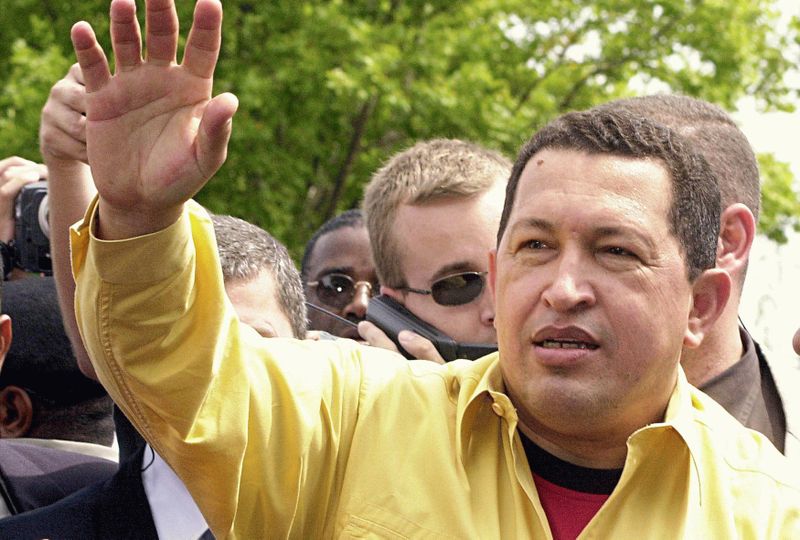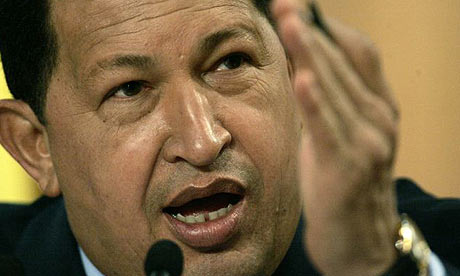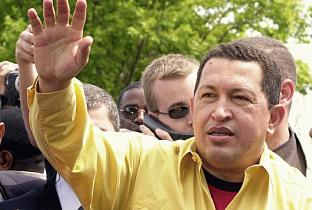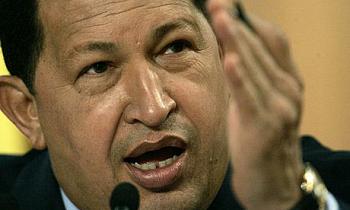Latin America: Chavez has advantage in Venezuela Poll
Venezuela is holding a presidential election today the 7 October 2012, also referred by local media as 7-0, to choose a president for the six-year term beginning February 2013. The main candidates are the incumbent Hugo Chávez, representing the United Socialist Party of Venezuela (Partido Socialista Unido de Venezuela, PSUV) and Henrique Capriles Radonski, representing Justice First. The candidates are backed by opposing electoral coalitions; Chávez by the Great Patriotic Pole (Gran Polo Patriótico, GPP), and Capriles by the opposition Coalition for Democratic Unity (Mesa de la Unidad Democrática, MUD). There are four more candidates from different parties. Candidates César Pérez Vivas (governor of Táchira state), Antonio Ledezma (mayor of the Metropolitan District of Caracas) and Eduardo Fernández (former secretary general of COPEI) withdrew from the race, saying they would support candidates with better chances of winning
One of remaining strong critics of US imperialism, President Hugo Chavez is now facing a poll on 7th October to resume power in North America’s Venezuela. Last time Chavez won comfortably in Petare, one of Latin America's biggest slums with nearly half a million people.
Chavez remains the most popular leader in Venezuela. And the pro-poor measures he has undertaken have earned him special name. For instance, the barrio, planted on a steep hillside, is run by a community council of Chavez loyalists who provide special care for the handicapped, register the elderly for pensions and parcel out government handouts, from free food for the needy to subsidies for home improvements. However, such services, delivered through what the government calls "missions," long ago, due to non-seriousness of subordinates ruling the regions, have stopped translating into solid allegiance for Chavez, who is seeking a third six-year-term.
The neighbourhood is divided, owing in some degree to mismanagement by pro-Chavez mayors and governors who were voted out of office in 2008 and 2010, respectively. The replacement governor was Capriles, who tried to create parallel organizations to rival the Chavista communal councils but largely failed because the central government, master of Venezuela's oil riches, controlled far more funds.
The housing, health and other programs have been the cornerstone of President Chávez's tenure, who "remains very popular, largely because of the vast number of social programs he has put in place, funded by Venezuela’s vast oil wealth". Chávez has said the opposition represents "the rich and the US government"; as part of his campaign, he increased social spending and investments to benefit the poor, and plans to launch a satellite made in China before the elections.
A dispute erupted over the disposition of the voter rolls, rising out of concern that opposition voters could incur reprisals. Because the names of voters who had participated in the request of the 2004 recall referendum against Chávez had been made public via the Tascón List and, according to opposition leaders, those voters were later targeted for discrimination or lost jobs.
Vice President Elias Jaua is behind the communal councils and the president is behind him." The councils allow Chavez's political machine to bypass local and state governments, sometimes controlled by the opposition, and reach the grass roots. Suarez is a committed Chavista, and his house is being rebuilt. During Friday's visit by Associated Press journalists, two laborers were plastering the brick and mortar that replaced the rickety wood and cardboard walls. "For me, if 'El Flaco' wins the missions will go away. We'll all die. We'll all die of hunger," Suarez said. "He's with the bourgeoisie."
The 25-year-old nurse, a mother of 5-year and 18-month-old boys, has spent more than half her life under Chavez's rule and said she thinks Chavez has done a lot of good. But she listed several of the most oft-cited reasons for why she wants him gone: spiralling violent crime, the bloating of government payrolls with Venezuela United Socialist Party acolytes in do-nothing jobs at a burgeoning list of government ministries, and unchecked corruption that she says extends to the communal councils. "What hurts Chavez are the people who surround him. They don't help because they are a band of thieves," she said. "The police are themselves crooks." Illamizar was especially upset because the local communal council hasn't given her funds to replace her leaky old zinc roof, which is held down by loose bricks and planks.
Challenger Henrique Capriles has built a surprisingly large following in what was once clear Chavez territory across Venezuela. The fervent support for the president among the working poor he's graced with state largesse has eroded. "'El Flaco' owns the street!," Maria Hernandez, 62, shouted from her pane-less window as three foreign journalists climbed steps through a warren of red brick homes in a 1,500-family slice of Petare known as Jose Felix Ribas. Farther up the hillside, orange flags of one of the parties backing the 40-year-old opposition candidate flew from a second-floor window of Ivana Villamizar's home." If Chavez wins, I'm thinking of leaving the country," she said. "I really don't want my children's future to be in a country in this condition."
Venezuelans, whose oil-export driven economy produces little else, have become more dependent than ever under Chavez on state handouts and Capriles has expressed no intention of weaning them from government aid. He has painted himself a centre-leftist, promising to keep the missions and not to thin public payrolls. Capriles is, however, solidly backed by Venezuela's right and that has stoked fears of a huge purge of Chavez loyalists if he wins. The fears have fuelled sporadic violence. Little has been lethal, but two Capriles supporters were shot dead last weekend in the president's home state of Barinas, and some blamed Chavez supporters.
Two days ahead of voting, there was a widespread feeling that the race is so close that the election will be decided by a large pool of voters, perhaps 10 percent, making up their mind in the voting booth. Opinion polls have varied widely and are largely considered unreliable, so intuition is getting a workout. "There are so many Chavistas, so many people who live in this barrio ... who are public employees and have been obliged to attend government rallies," she said. Villamizar said she had no idea what would happen Sunday. "I'll tell you, I don't know. I just don't know. Let it be what God wills."
In June 2012 most pollsters showed Capriles behind by at least 15 percentage points and intention to vote for Chávez slowly increasing since the end of 2011. One firm, Hinterlaces, was accused by Capriles of publishing "bogus polls".
The Chavez campaign accused Datanalisis and Consultores 21 of inventing polls to support opposition plans to claim fraud in the event of defeat. Chavez held a 10-point lead over rival Henrique Capriles in one of the final polls ahead of Venezuela's Oct. 7 election, but the survey released Tuesday showed the challenger narrowing the gap. The poll by Datanalisis, one of Venezuela's most respected polling firms, found that about 49 percent said they intend to vote for Chavez and about 39 percent said they plan to vote for Capriles.
Comments
There are 0 comments on this post















